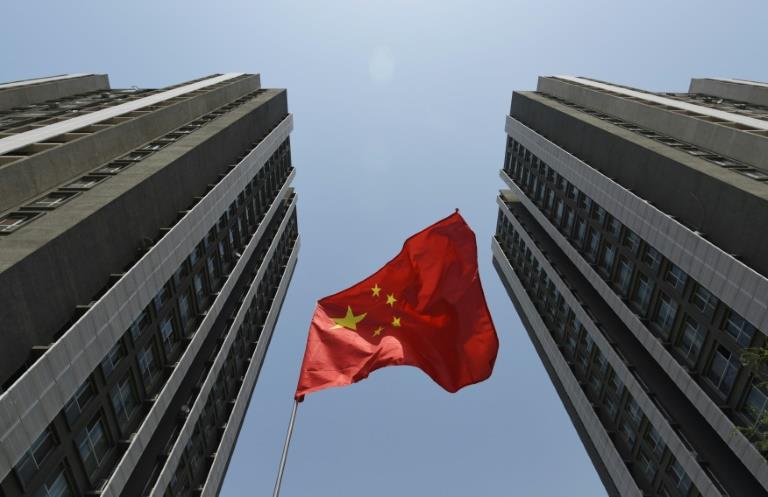
Moody's cuts China's rating on debt fears
The agency lowered China's long-term local currency and foreign currency issuer ratings to A1 from Aa3, but said its outlook changed from "negative" to "stable".
"The downgrade reflects Moody's expectation that China's financial strength will erode somewhat over the coming years, with economy-wide debt continuing to rise as potential growth slows," the agency said.
The downgrade comes as China has launched efforts to clean up a toxic brew of unregulated and risky lending, with the International Monetary Fund warning that a Chinese debt crisis could "imperil global financial stability".
But analysts have expressed scepticism about Beijing's willingness to quit its debt addiction since freewheeling credit conditions have underpinned the growth China's Communist Party relies on for political legitimacy.
The government has trimmed its 2017 gross domestic product target to around 6.5 percent after it expanded by 6.7 percent in 2016, the slowest growth rate since 1990.
China's 13th Five-Year-Plan released in 2016 announced an average annual growth rate of above 6.5 percent for 2016-2020.
But Moody's said it expects China's growth potential to decline to close to five percent over the next five years, citing a slowdown in capital stock formation, an accelerated fall in the working age population and a continuing dip in productivity.
- 'Throwing cold water' -
Chinese stocks fell in early trading after Moody's announcement, with the benchmark Shanghai Composite Index falling 1.01 percent, or 31.01 points, to 3,030.94.
The Shenzhen Composite Index, which tracks stocks on China's second exchange, lost 1.08 percent, or 19.24 points, to 1,770.23.
Hong Kong stocks also fell at the start of trading.
"The downgrade will certainly affect China negatively," Liao Qun, Hong Kong-based chief economist of Citic Bank International, told AFP.
"The direct impact is that this would make China's debt financing more difficult and the financing cost would also raise," Liao said.
"This is like throwing cold water when everyone is optimistic about China's economy."
- Stable outlook -
Despite concerns, Moody's upgraded China's negative outlook.
"The stable outlook reflects our assessment that, at the A1 rating level, risks are balanced," it said in its ratings note.
"The erosion in China's credit profile will be gradual and, we expect, eventually contained as reforms deepen," Moody's said.
"The strengths of its credit profile will allow the sovereign to remain resilient to negative shocks, with GDP growth likely to stay strong compared to other sovereigns, still considerable scope for policy to adapt to support the economy, and a largely closed capital account."
Moody's last downgraded China's debt rating in November 1989, lowering it from A3 to Baa1.
Fears are mounting that China is flirting with a potential disaster worse than the US sub-prime collapse and subsequent 2008 financial crisis, and Japan's 1990s asset-bubble meltdown and resulting "lost decade".
China's banking regulator recently unveiled measures to rein in dangerous lending, tighten balance sheets and strengthen institutional transparency and chronically weak internal controls.
Moody's had estimated in October that China's "shadow banking" sector -- off-balance-sheet lending that evades official risk supervision -- totalled $8.5 trillion, or nearly 80 percent of its GDP.

Legal Disclaimer:
MENAFN provides the
information “as is” without warranty of any kind. We do not accept
any responsibility or liability for the accuracy, content, images,
videos, licenses, completeness, legality, or reliability of the information
contained in this article. If you have any complaints or copyright
issues related to this article, kindly contact the provider above.


















Comments
No comment